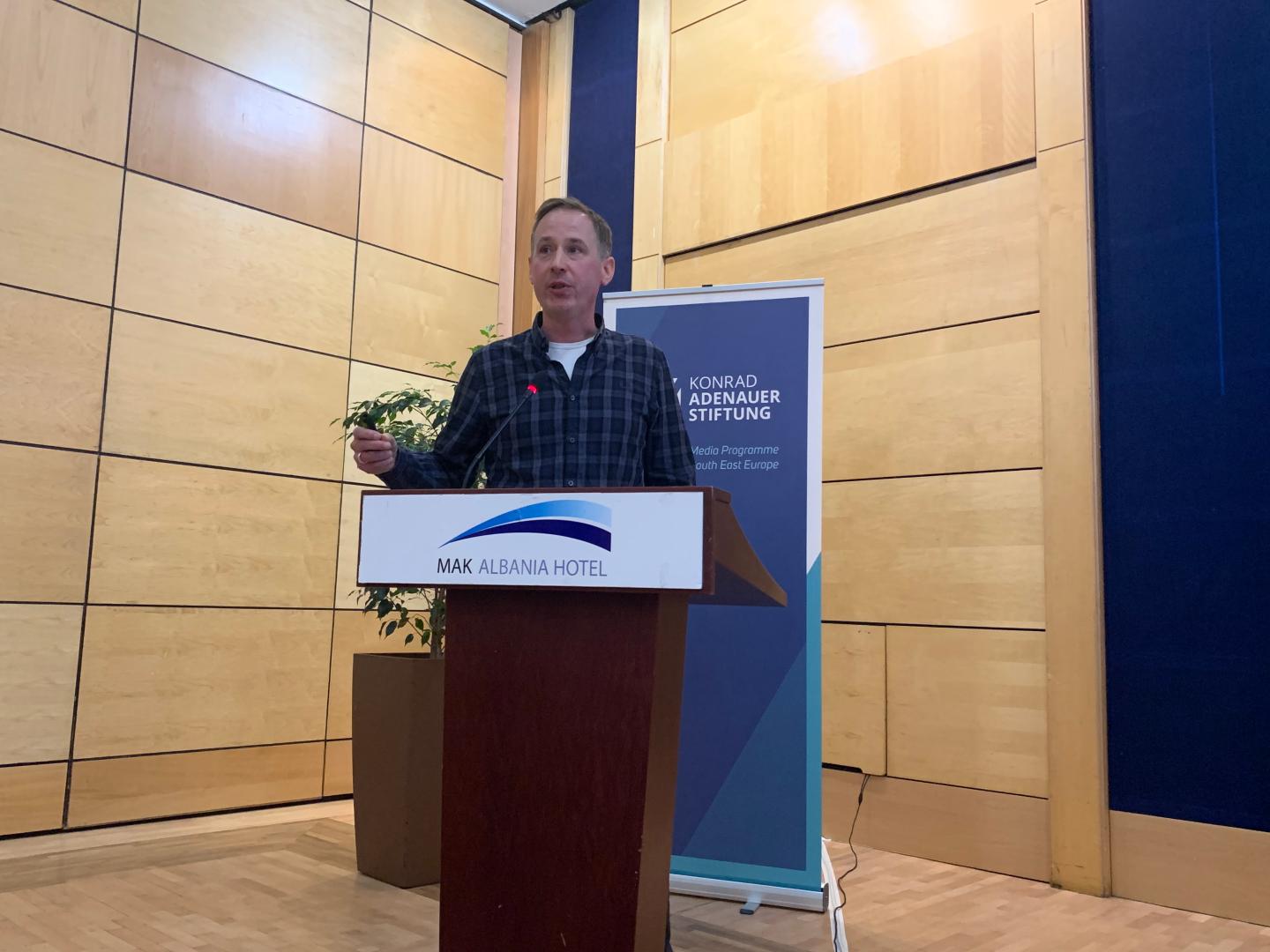In 2017, the German dictionary Duden added the term “fake news” to their vocabulary. By then, it was clear that the spreading of disinformation had become a serious issue, threatening the credibility of journalists, and ultimately, our democracy itself. The KAS Media Programme brought together journalists from all over South East Europe as well as Germany, Italy and Brussels with the objective of exchanging ideas and presenting each other fact-checking initiatives from the region to fight fake news.
Old handicraft, new challenges
„Fact-checking may come across as a new challenge, but actually, it has been one of the journalist’s key tasks for decades: Collecting information and verifying it before publishing. This process is part of the natural responsibility of every media outlet and journalist. Their readers, listeners and viewers need to be able to rely on the fact that they receive verified and truthful information.” – With these words, Hendrik Sittig, head of KAS Media Programme South East Europe, opened the event. It was organised in cooperation with the Albanian Media Institute directed by Remzi Lani.
During a speed pitching session, the eleven participants presented their respective projects and talked about the situation regarding disinformation in their countries. “Especially in the run-up to elections, we witness an increase of fake news”, said Vladimir Petreski, managing editor at the NGO Metamorphosis based in North Macedonia. Social media such as Facebook don’t provide enough support for fighting disinformation, he stated, because they have not yet developed effective mechanisms to contain the rapid spread of fake news. Most of the time, Facebook doesn’t react at all or with major time delay to user reporting, Victor Spinu from Moldova explained. He has developed a desktop add-on called “Trolless” which marks fake accounts, that have been reported but not yet deleted, with a warning icon. This technique helps users to identify fake content immediately when scrolling through their timeline.
How to fact-check?
On top of marking fake profiles, the participants discussed other measures to check the veracity of media content. Leone Hadavi, journalist and contributor to the investigative journalism network Bellingcat, explained his technique of open-source investigation, using an example from a 2019 #EUarms research project. Freely accessible websites like Google Earth and YouTube can serve as key tools for verifying locations, images and videos.
Serbian journalists Milena Popovic (editor-in-chief of the online portal Istinomer) and Milica Saric (editor-in-chief of the investigative NGO CINS) stressed the importance of reliable journalism, especially taking into consideration the upcoming parliamentary elections in their country. They both fact-check statements of politicians on a regular basis, revealing false claims and the misuse of numbers and facts. Most fake news is deliberately put into wrong context to serve political purposes. “Responsible journalism needs to question every number and every word”, appealed Popovic and Saric to their colleagues.
More in the event report.
Topics
On the Self-inflicted Causes of the Crisis in Journalism
The fire disaster in Kočani: Shock for state and society in North Macedonia
Why an independent Digital Ministry is indispensable and how it could be structured
Renewal of political parties - Digitalisation and political parties
Which News Can Still Be Trusted?










